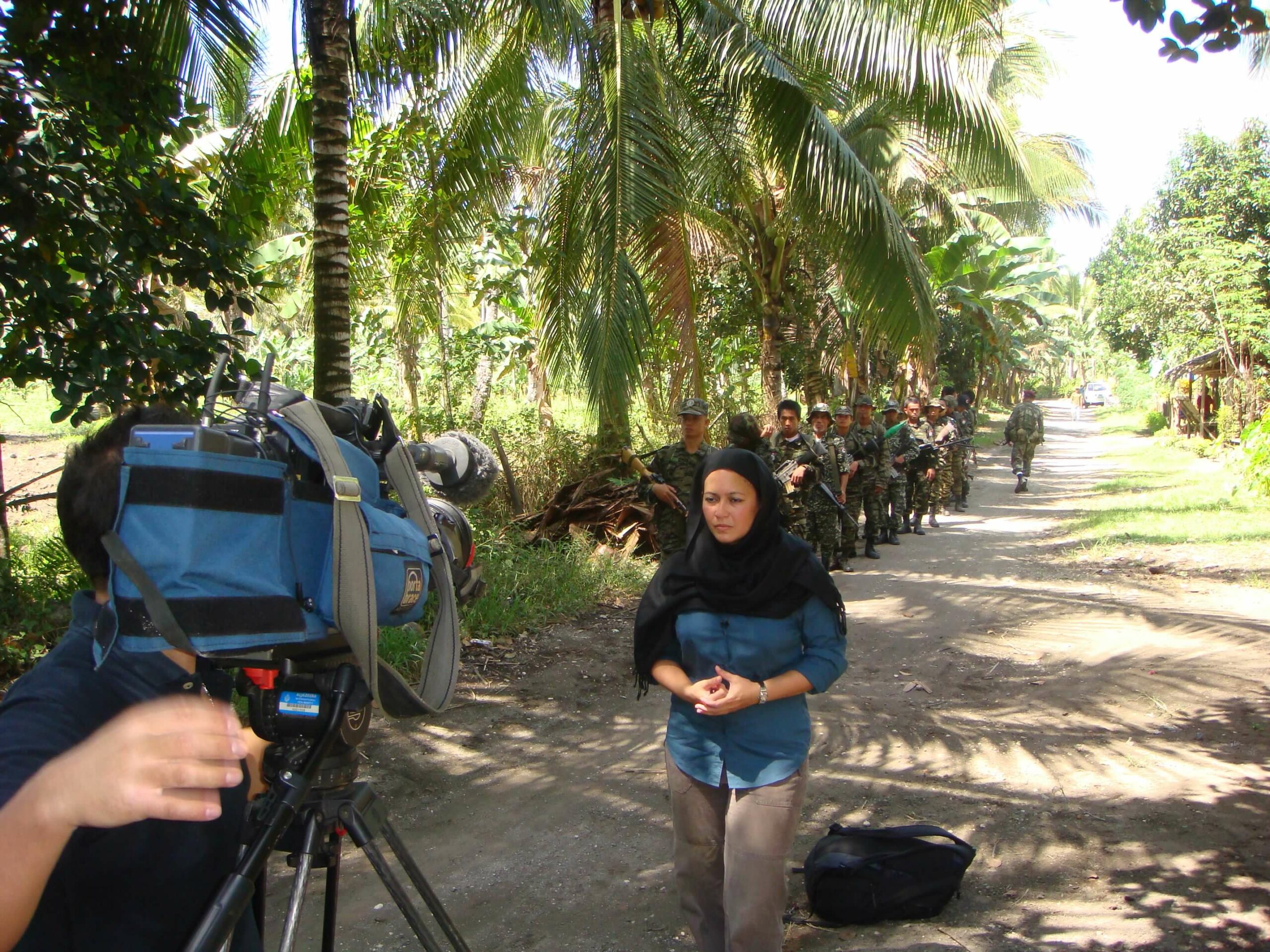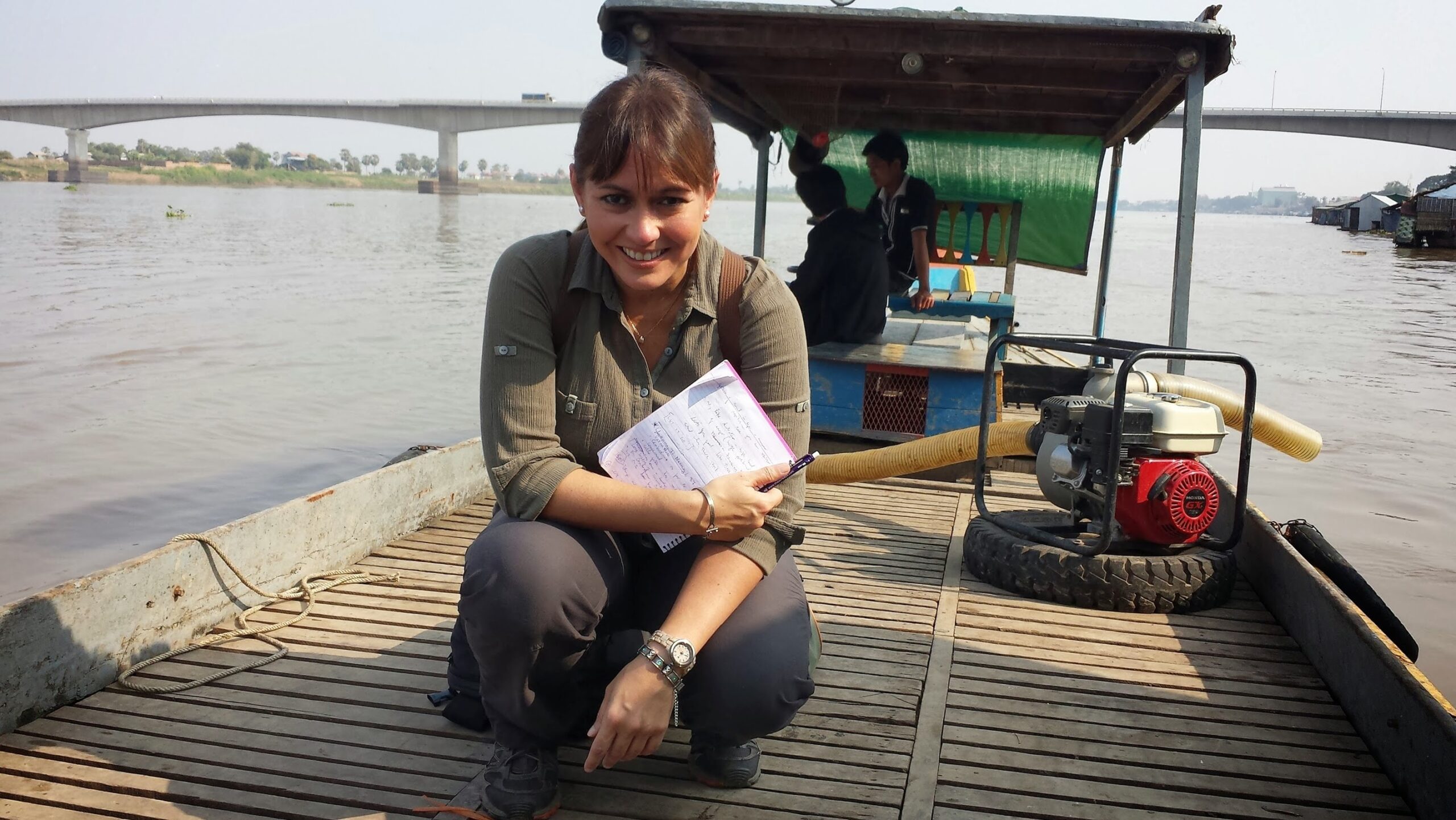A young Fredrico Julián Castillo de Montijo, progenitor of what would become one of the Philippines’ most iconic families, makes his way from Spain to the island nation in the lead-up to WWII, escaping a fermenting civil war to build a life in a new tropical home. His optimism mirrors that of the young nation. Decades later, with the family fortune established through post-war reconstruction, two generations of Castillo de Montijo children choose their own paths, some embracing a place in the nation’s aristocracy, others drifting to the fringes of society.
Throughout April, in the run up the 9 May 2022 presidential election, Filipinos witnessed familiar names return to power in what, for some, was a surprising backslide towards their nation’s troubling past. But in veteran journalist Marga Ortigas’s debut novel, The House on Calle Sombra, rewriting history and shaping collective memory are not outliers, instead serving as common threads driving her characters and alluding to the power of perception over reality.
Centred around the titular house on a shady street, the story follows the fictional Castillo de Montijo family across three generations of life on ‘The Islands,’ revealing stark contrasts between the clan’s outward appearances of gentility and the sordid reality beneath. Shifting narratives between the modern-day capital and the family’s origins in 1950s Manila, Ortigas skilfully helms the ship as her characters navigate the Philippines’ rampant nepotism, convoluted social hierarchy and iron-clad filial duty.
The nation’s duplicitous political landscape serves as a backdrop for the drama of family secrets, broken marriages and generational alliances. Well-researched and firmly planted in reality, Ortigas’s incorporation of Spanish and Tagalog reflect the multiculturalism at the heart of Filipino culture, while her skilfully-crafted use of slang and social media vernacular capture the dramatic shift between old and new generations.
From the ‘hashtag President’s’ ultra-violent war on drugs to tensions with Islamic fundamentalists in the southern islands, the Castillo de Montijos are embroiled in the exciting, but ultimately tragic, circumstances that continue to shape life in the Philippines.
Despite all this, Ortigas’s love for her country is clear.
The House on Calle Sombra doesn’t shy away from the contradictions inherent in life: duty and freedom, beauty and violence, fact and fiction. Instead it shines a light on the absurdity of life when history can be shaped by people’s convictions and the son of the world’s most notorious kleptocratic power couple can have a fresh start with a firm grip on power.
The Globe spoke with Ortigas about rewriting history, her work as a journalist and the power of storytelling as a tool for seeking truth.

One theme that seems to run through your story is the concept of erasing the past and rewriting history. Given the clear parallels between this theme and recent political events in the Philippines, what do you think is the appeal of embracing a manufactured past?
It’s easier to deal with something that has been whitewashed than it is to look at something ugly. I think this goes for things that are very personal as well as something larger, like the history of a dictator or martial law.
For example, the way [the Philippines] dealt with trauma compared to the way Germans dealt with World War II and the atrocities committed are very different. Not that it is the same thing, but Germany looked it in the eye, dealt with it and then vowed that they would never let anything like that happen again. Then made changes in their society. They didn’t really do that here. It was more like, “That happened, it was horrible…let’s sweep it under the rug and carry on.”
And then they moved on to other things. So it’s very easy in that sense to change how future generations might look at it, since they don’t have first hand experience. The pattern can just keep repeating itself for generations.
Conversely, what do you believe are the dangers of influencing collective memory and what can it mean for a society?
You can see it in the U.S. and here, there are deep divisions in society over what one political camp has said; one version of history might very be different from another. So the followers of these politicians become almost like rabid fans to the point where they can’t even engage in a conversation where they might explore each other’s differing beliefs.
There’s no concept of a shared history, so it doesn’t matter if you slap proof down on the table because they’re going to say it’s fake, it’s photoshopped, that’s not what they’ve been told. It’s just, “No you’re wrong!”
This anger can spill over into other things so people don’t see themselves as a collective whole anymore, but as a deeply divided society that believes very different things, has very different ways of doing things, and sees the other – who is their brother – as an enemy.

There are some characters in your story that are obviously based on historical figures – the nation’s notorious former first-couple and an uncouth president waging a violent war on drugs for example. Were there challenges you faced in terms of walking the line between reality and fiction?
The book ended up writing itself in a lot of ways, so I didn’t really think, “Well this is historical, so I’ll put it in and tweak it this much.”
I just took certain things – martial law, WWII, authoritarian rule – that created national traumas and used them as a basis. These are things that societies around the world can relate to, this isn’t something that can only happen in the Philippines. It could be in Latin America, you could see it happen anywhere you have an authoritarian ruler.
From there, I just tried to go as far as I could with the fictional side of the story. Half of the stuff that I thought was too far out to put in the book was actually tame compared to things I learned about later that, if I had used, may have been a little too specific.
You might think that something is too far out there, and then you realise later on that the truth is much much stranger than anything you could make up.
After a decades-long career in journalism, The House on Calle Sombra is your first novel. What inspired you to write a work of fiction and how do you think your experience as a journalist shaped your writing process and the novel itself?
I always wanted to write a book, so it was always there. But I think I was always afraid of going and putting something out there that was all my own. In a way the news is easier because it makes the author less vulnerable. You’re taking reality, putting it in a package and trying to get people to understand something.
I had loads of notes, from interesting people I’ve met or interesting things I’ve seen in different countries and I wanted to explore fiction because I wasn’t constrained to a certain format. But what journalism did was, I have a rather limited attention span, so a lot of the sentences in the book are very short and almost meant to be read out loud and the descriptions are very visual because it’s just the way I think now. I think in snippets but these snippets come together and build a lego castle, if you will.
Your story touches on a host of sociopolitical issues that continue to shape life in the Philippines; the remnants of colonialism, corruption, drug abuse, Islamic extremism, and state-sponsored violence all feature significantly in the book. What role do you feel storytelling can play in driving discourse, shining a light on important issues and finding truth?
I kind of put everything I had up to that point in the book, precisely because I could say things that I might not have otherwise been able to say to audiences had I done it through journalism. This way I am leading you into a story: “Look at this. It’s not a real person, but it might reflect realities that are not unfamiliar.” It was, in a way, a safer way to allow people to examine things that they may not look at if it seems real.
For me it felt like therapy in that sense. I could just write it all down, everything I had seen, everything I had felt, and everything I felt I needed to say in a safe space where I’m not pointing fingers.
I think that’s what storytelling does for every culture. It’s a tool for people to explore aspects of existence in a safer space than they might otherwise have, because sometimes the reality may be too frightening.
As someone who was born and raised in the Philippines, you have produced a novel that captures the complex and often conflicted nature of the country and its national identity. In writing The House on Calle Sombra, have your thoughts and feelings about your country changed in any way?
Not quite. I think…no, not at all.
It’s still the reality I am seeing, it’s just repeating itself. I see myself as a witness, like the last elections, you’re watching it and seeing it unfold and, for me, nothing has changed. An actual dictator’s son has become president of the country.
For me, I don’t want to say it’s expected, because I wasn’t sure what to expect, but the fact that this is what happened has revealed to me how the country still sees itself. It’s disheartening.
The House on Calle Sombra, by Marga Ortigas, is published by Penguin Random House SEA. Further information about the book and its author can be found here.


